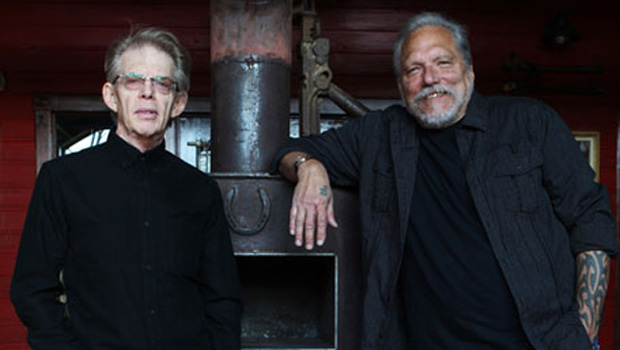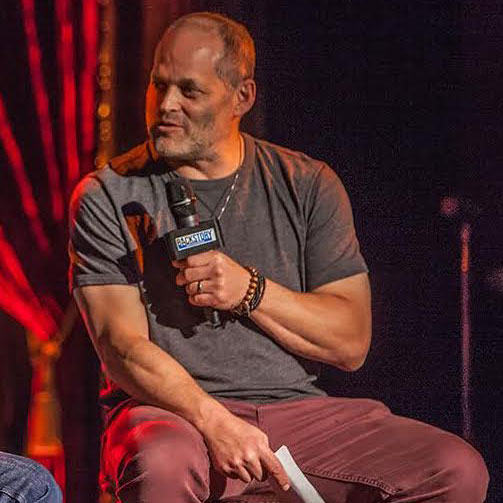
Jorma Kaukonen was a founding member of two legendary rock bands, The Jefferson Airplane and the still-touring Hot Tuna.
The Airplane debuted in 1965, the first San Francisco psychedelic band to make an impact, a few years before their friends in the Grateful Dead. They were the only band to play at the big three of major '60s rock festivals: Monterey, Woodstock and Altamont.
Eventually, the band split into two: the pop-rock Jefferson Airplane and the rootsy, blues-based Hot Tuna, featuring Kaukonen and bassist Jack Casady. The pair still tour in electric and acoustic settings, while the guitarist also has a thriving solo acoustic career. He also is a popular instructor at the Fur Peace Ranch, a guitar camp he founded 15 years ago on his Ohio property.
Writer Alan Paul caught up with Jorma on the phone in Hawaii as he prepared for a short tour of Japan and China.
GUITAR WORLD: You have a multi-track career: solo shows, Hot Tuna electric, Hot Tuna acoustic. Do you approach all of these formats very differently?
Well, it’s always me, so that’s the same, but my task as a member of these different setups is different. When I play completely solo I do a lot of finger picking, which is always challenging and fun. When I play as a duo with my buddy Barry Mitterhoff, who is a fabulous mandolin player , I tend to do a lot of rhythm, strummy things because the mandolin is essentially a lead instrument and Barry is a great soloist. That’s endlessly fun for me.
If Jack [Casady] is in the band in an acoustic format, I don’t have to worry about the bass lines, which frees me up. And the electric thing is … the electric thing. It’s totally different. I consider myself the luckiest guy in the world because I get to all of these different things.
Get The Pick Newsletter
All the latest guitar news, interviews, lessons, reviews, deals and more, direct to your inbox!
So do you use different instruments in these settings?
I’ve gone through the guitar thing over the years and had some beauties, but now I try to keep it simple. Over the last couple of years, I’ve been putting money in my daughter’s college fund instead of spending it on an endless array of instruments. I use a Martin M30 Jorma Signature Model. It’s a great guitar, which can do anything I need, and I’d gladly play an M30 if I didn’t have the signature model.
When I play electric in Hot Tuna, I use two guitars: a Chet Atkins SST with acoustic strings for finger picking and a Gibson Les Paul Standard for rock and roll. Back in the day, the 345 and then the 335 defined my electric sound, but I stumbled onto this Les Paul and I just fell in love with it. It sounds great and it’s nice and light. I’m getting old, what can I tell you?
Are you looking forward to performing in Beijing and Shanghai?
I’m really excited. This all came as a huge and pleasant surprise for me. I’ve been to Japan periodically for years, though not in about 15 years and when I was approached about coming to China on the heels of a Japan tour, I jumped on it. My wife and I adopted a little girl from Nanning, so se has been there, but I have not and I am sure looking forward to it. My daughter is almost six years old and China obviously has a lot more meaning to us now. The day after the show in Beijing is a day off and I am hoping to get out there and see some things.
Your Fur Peace Ranch looks like heaven for us guitar geeks – you spend a weekend taking lessons from you and your fine-picking friends.
We’re into our 15th year, running Friday-to-Monday sessions March through November, and it is a blast. I am there most of the time, but not always. In the beginning, I was the big draw but the ranch has gained a life of its own so it’s no longer dependent on me being there.
You can’t put this in a brochure, but I think what makes it great for people is not just that we have so many great instructors, but even more a weekend of just being surrounded by like-minded souls. You see people light up and it lights me up, too. It reminds me of why I got into this game in the first place. I was sort of a shy kid and I became fully realized with a guitar in my hands. That’s the feeling I get being there with a whole ranch full of people who think the same way.
For more about Hot Tuna, visit their official website.
Alan Paul, whose blues band Woodie Alan performed in Beijing from 2007 to 2009, is the author of Big In China.
Alan Paul is the author of three books, Texas Flood: The Inside Story of Stevie Ray Vaughan, One Way Way Out: The Inside Story of the Allman Brothers Band – which were both New York Times bestsellers – and Big in China: My Unlikely Adventures Raising a Family, Playing the Blues and Becoming a Star in Beijing, a memoir about raising a family in Beijing and forming a Chinese blues band that toured the nation. He’s been associated with Guitar World for 30 years, serving as Managing Editor from 1991-96. He plays in two bands: Big in China and Friends of the Brothers, with Guitar World’s Andy Aledort.
“There’d been three-minute solos, which were just ridiculous – and knackering to play live!” Stoner-doom merchants Sergeant Thunderhoof may have toned down the self-indulgence, but their 10-minute epics still get medieval on your eardrums
“There’s a slight latency in there. You can’t be super-accurate”: Yngwie Malmsteen names the guitar picks that don’t work for shred


![A black-and-white action shot of Sergeant Thunderhoof perform live: [from left] Mark Sayer, Dan Flitcroft, Jim Camp and Josh Gallop](https://cdn.mos.cms.futurecdn.net/am3UhJbsxAE239XRRZ8zC8.jpg)







